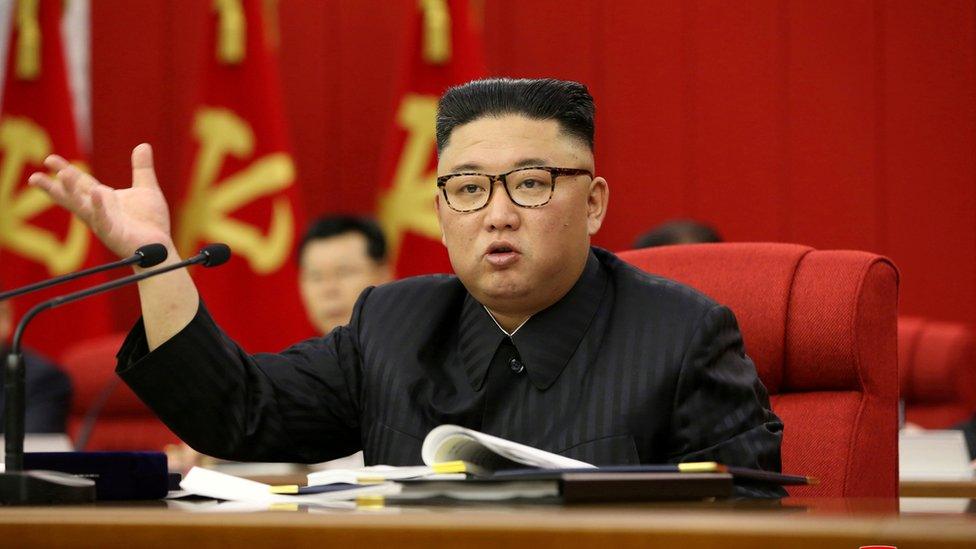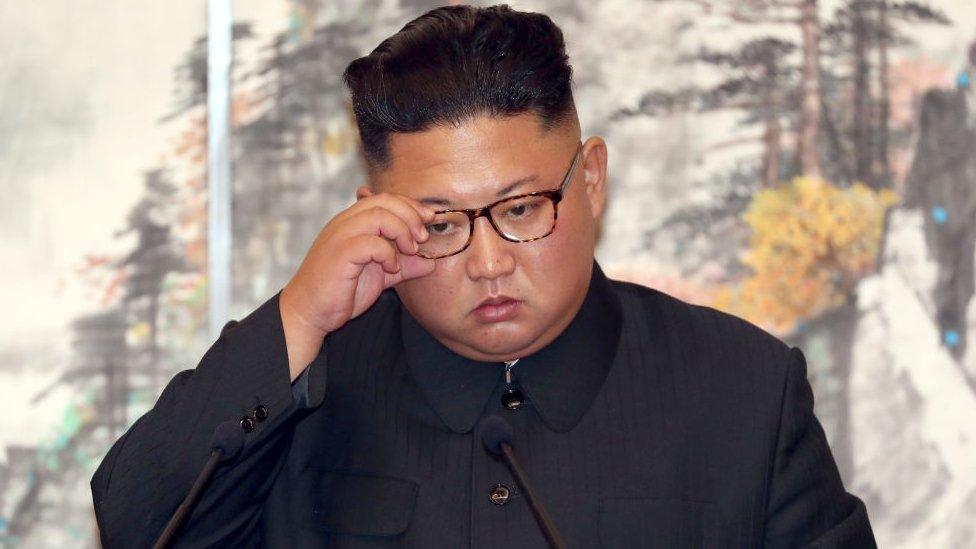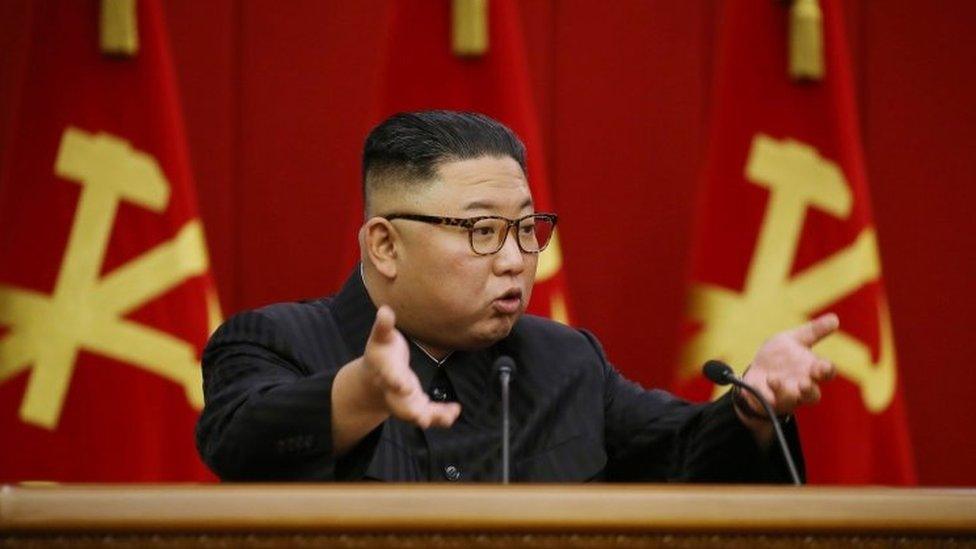Russia offers North Korea Covid vaccines again as crisis worsens
- Published

Recently leader Kim Jong-un formally acknowledged that the country was facing food shortages
Russia has offered North Korea Covid vaccines once again, amid reports that a harsh lockdown is leading to extreme hunger.
Pyongyang has refused vaccines and aid from a number of countries.
It has instead sealed borders to try and keep the virus out but that has affected trade with China. It relies on Beijing for food, fertiliser and fuel.
Kim Jong-un has acknowledged that the country is facing food shortages, describing the situation as "tense".
He made the comments last month and also told citizens to prepare for the "worst ever outcome" which has invoked comparisons to a deadly famine in the 1990s.
International trade sanctions are believed to have further put pressure on food supplies.
Russia has previously told North Korea that "not everyone can endure unprecedentedly strong, overarching restrictions", and on Wednesday Russian Foreign Minister Sergey Lavrov said that Moscow has offered Pyongyang vaccines on a number of occasions.
He also repeated the offer to provide vaccines should the country require them.

North Korea is in crisis. How big this crisis becomes will depend on what happens in the next few months.
There are now a number of reports suggesting food shortages and it's thought Kim Jong Un has ordered the military to distribute its stores among the people.
A UN report yesterday said the country is facing food shortages of around 860,000 tonnes this year and it is forecasting a "harsh lean period".
Let's be clear, this is nowhere near the levels of famine seen in the 1990s, but food stocks are dwindling and the autumn harvests must go well to avoid widespread hunger.
Last year a number of typhoons flooded fields and destroyed crops. North Korea cannot afford any more natural disasters.
One way out of this crisis would be to vaccinate people in the country against Covid-19 which would allow the regime to lift border restrictions, restart trade and perhaps even accept aid.
I've discussed the logistical issues of this with a number of experts who suggest that North Korea's reluctance may be due to a lack of refrigeration facilities to transport the vaccine and a fear of letting foreigners in to monitor the rollout.
These are problems, I am told, that can be discussed and overcome. But at the moment, Pyongyang is showing no sign it is willing to act.
In the meantime, once again the regime's insistence on self-reliance means its people are going without food.

North Korea says it has no Covid cases, a claim doubted by experts.
Last week a high ranking official was fired over an unspecified "grave incident" believed to be related to the virus.
North Korean media later named him as Ri Pyong Chol, a top-ranking military official.
Kim Jong-un also berated top officials over lapses related to Covid-19, North Korean state media report last month.
It was a rare sign of the pandemic's severity in North Korea.
China and South Korea are among a number of countries that have previously offered jabs to Pyongyang.
You may also be interested in
Russians cheer as they exit North Korea on hand-pushed trolley
Related topics
- Published30 June 2021

- Published28 June 2021
